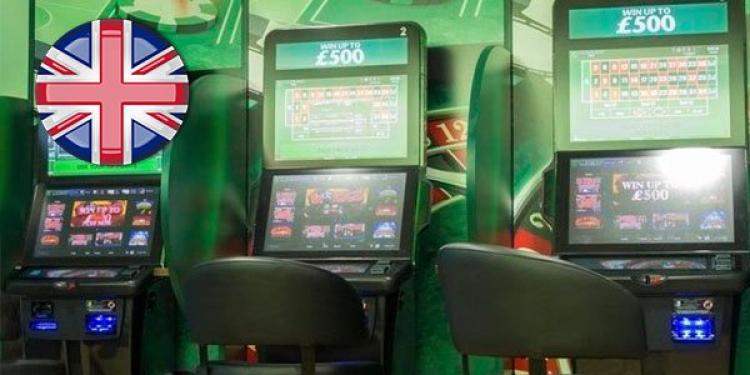4 Crazy Ways UK Gambling Laws Screw the Punter
Posted: March 10, 2014
Updated: October 4, 2017

Gambling is a legitimate leisure activity, but if you bet in Britain, you are getting screwed. Here’s why.
We are all for the freedom to use your money on anything you deem worthy. But, if you gamble in Britain chances are you are getting screwed. Hard. If you enjoy getting screwed, that’s your business. If not, read this article to find out how.
Fixed-odds betting terminals
Fixed-odds betting terminals (FOBTs) are tremendously popular and can be found on High Streets everywhere, with 33,000 in operation nationwide. That’s a shame, because they offer terrible odds to bettors, making gambling news for all the wrong reasons. FOBTs offer a variety of games including roulette, bingo and simulated horseracing, with roulette being the most popular. These machines were first legalized in 1999 and have been lightly regulated, with the Guardian reporting that they took in over GBP 1.5 billion in 2012. According to a spokesperson for the Organization for Fairer Gambling:
“FOBTs are the most addictive form of gambling, and you have to question why casino gaming machines are allowed on the high street. There is still a huge stigma with gambling addiction, so we’re unaware of the real extent of the problem.”
Players can wager up to GBP 100 per spin, allowing these machines to empty their pockets quickly. Critics of the current Conservative government have pushed for limiting to stake to GBP 2, but regulations haven’t been changed. These machines are also not required to have periodic breaks in play, which would limit the amount of money that can be wagered in a given period of time.
Why are operators of these machines allowed to stick it to their users in such a blatant manner? We aren’t sure why, but somebody must be in bed with both Labour and the Conservatives. The outcome of this threesome is bad news for punters.
Fruit (slot) machines
Most developed countries have strict regulations to protect users of slot machines which are called fruit machines in the UK (and no, they don’t pay out fruit). They include things like limits on house edge and the amount of bets which can be placed per hour. They can be found in casinos as well as service stations and pubs. The Daily Mail reported that in a given year they produce over GBP 2 billion in revenue, and make up the majority of land-based casino revenue.
• Fixed-odds betting terminals were legalized in 1999 and are one of the biggest money-suckers in the entire gambling industry
• TV gambling advertisements increased in frequency by 600 percent from 2007-2012
• Want to gamble at the library? Sorry, not legal in Britain
The highest slot house edge found in the US is 25 percent, in Nevada. Most states require a much lower number. Australia has no machines carrying an edge higher than 15 percent. By contrast, Britain has no hard regulations on house edge. While industry spokespeople assert that most machines pay out 95 percent of what is wagered, some have been found to pay out only 70 percent. Gamblers would be better advised to play slots on British internet casinos, which offer much better average payouts.
UK gambling laws liberalized TV advertising
Britain used to have pretty serious regulations on televised gambling advertisements. Sure, ads don’t make people do anything they aren’t willing to do. But when a beautiful woman is telling me that if I bet with her online casino I’ll win a huge pile of money (and implies that I will have chance with her) do I really have much of a choice? The 2005 UK gambling law eased regulations, allowing advertisements for online casinos, poker and sportsbetting on top of football pools, lottery and bingo.
Since the law came into effect in 2007 their prevalence has exploded, pervading the minds of viewers with images of gambling, women (and men) and cash. In 2007 234,000 ads aired, climbing to 537,000 one year later. In 2012 British TV-viewers saw an astounding 1.4 million ads, an increase of 600 percent since laws were liberalized. The Guardian reported that the average 16-plus person saw 630 ads, with the average under-15 say 211. To clarify our position, this website treats gambling as a legitimate leisure activity. But pervasive advertising can be harmful to young people susceptible to irresponsible behavior.
No gambling allowed in libraries
Back in 1898, the good ol’days when the British Empire was the height of power and prestige, parliament passed an early form of gambling regulation: no betting or card games allowed in public libraries. You may wonder why anyone would want to gamble in a library anyway. We can think of one crucial reason.
Libraries are depositories of knowledge. There are countless books on everything from business to mathematical probability to history which could help you to make prudent betting decisions. And being in a library just makes you feel smarter. Depriving us of these resources certainly hurts our chances. Are the authorities, bookmakers and libraries acting in league to screw us out of cash? Probably not. But we don’t see why we shouldn’t be able to make bets from the local library.












